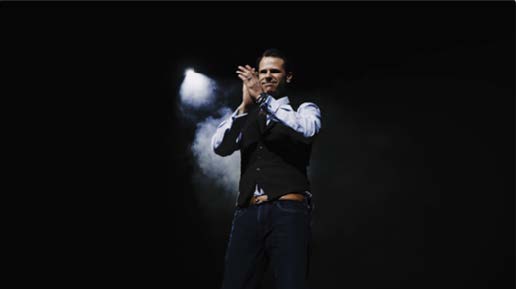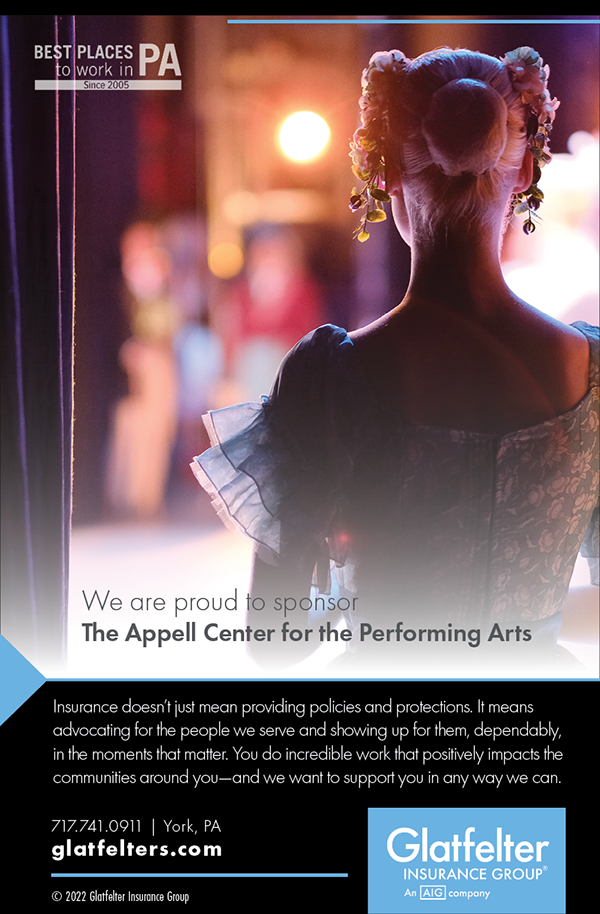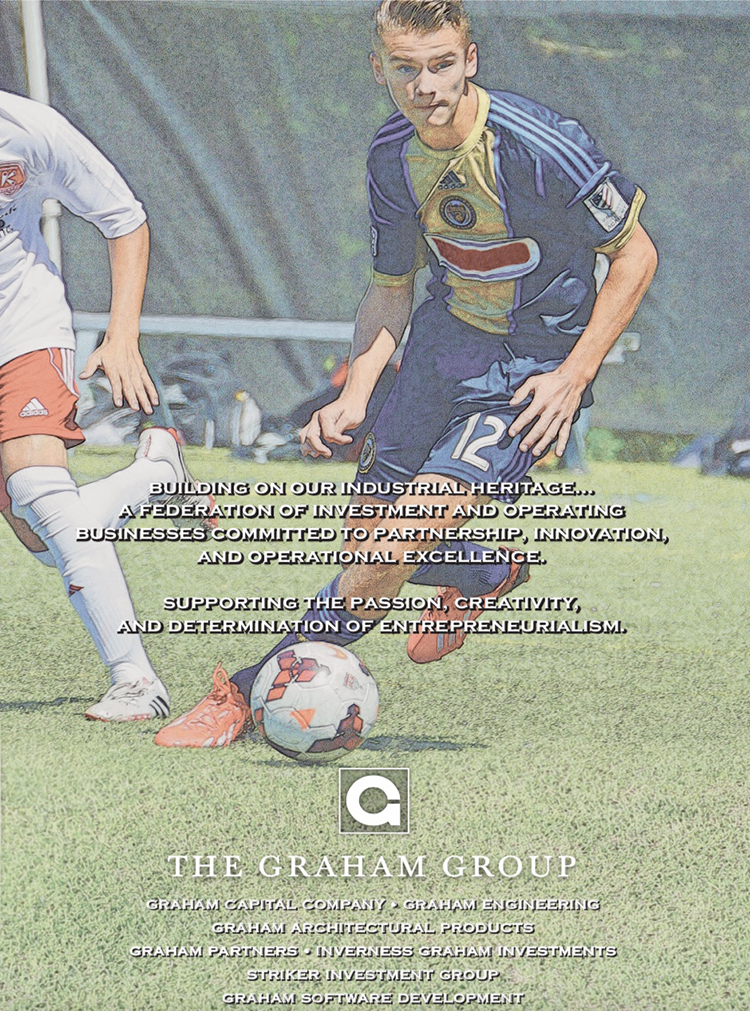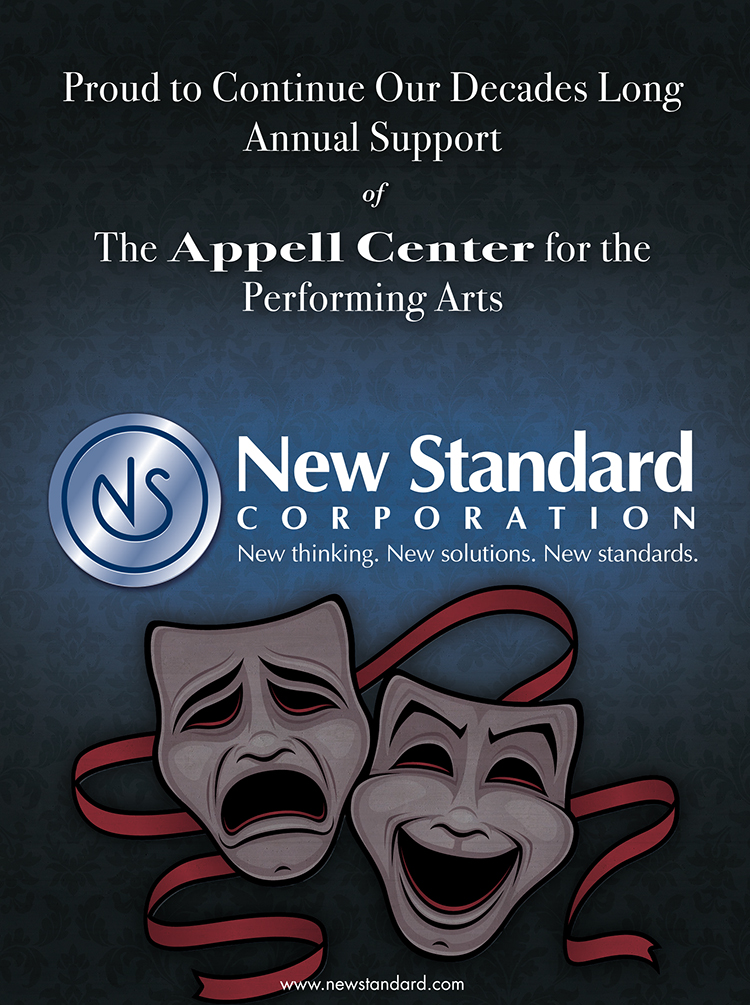History That Doesn’t Suck!
with Professor Greg Jackson
Capitol Theatre
Saturday, November 18, 2023 | 7:30pm

Four score and some months ago (ahem), I started this podcast with a few dozen listeners and an ardent desire to make US history fun and accessible. I never imagined it would grow as it has, now consistently placing among the Apple® and Spotify® top history podcast charts with more than 100 episodes and millions of downloads to date.
I adapted HTDS for the stage for the same reason I first created the podcast: to bring important stories from the past, both well-known and forgotten, back to life. History is full of rich, complex, and complicated situations and people. We sometimes forget this when saddled with a name-and-date heavy textbook, but I reject the idea that good history has to be a dry, ivory-tower telling. In brief, good history doesn’t have to be told in a way that sucks.
Tonight will be different from the podcast. We will enjoy the magic of lights, images, and comradeship — all the joys of theater and stagecraft. As much as I want you to enjoy these added aspects, I hope you’ll allow the stories to be the key element that paints a picture in your mind. While this is an evening of spectacle and rigorous research, the key element, in my humble opinion, is getting lost in the audible experience as our ancestors did before the bard gave way to streaming. Above all, I am here to tell you a story.
I have the honor to be, your obedient servant,
Greg
Professor Greg Jackson is best known as the creator, host and head writer of the popular US history podcast, History That Doesn’t Suck®. He is also a frequent commentator in film documentaries including the 2022 HISTORY® Channel three-night event Abraham Lincoln, which was Executive Produced by Pulitzer Prize-winning author Doris Kearns Goodwin and featured former President Barack Obama, among other history scholars. Professor Jackson holds a Ph.D. in history and is a tenured Associate Professor and Senior Fellow in National Security Studies, as well as Fellow of Integrated Studies at Utah Valley University.
Chapter I: Game of Empires
The mighty French and British empires are playing a game of chess with their colonies in North America. Young George Washington, in his first command of a colonial militia, stumbles into a dust-up with French troops and their Native American allies, which inadvertently ignites a world war. Finding themselves pawns in the game, American colonists contemplate forming a “union.”
Chapter II: Death and Taxes
Spoiler alert: Britain wins the war with France and gains disputed territories in North America. However, more territory means more problems, and Britain needs money. Parliament begins to tax the colonies for the first time ever, and the sparks of a revolution fly in New England.
Chapter III: The Rebel Alliance
The violence in New England has turned deadly for colonists and costly for Parliament. Parliament ups the ante in this game with its Coercive Acts to bring these rebellious colonies into line. “Americans,” as expressed by Patrick Henry, throughout the colonies are now sympathetic to Bostonians suffering under Parliament's levy and view the latest acts by Parliament as “intolerable.”
Chapter IV: The Empire Strikes Back
King George III doesn’t back down and views the colonies as blatantly rebellious; “blows must decide” the outcome. Colonial delegates from each state gather in Philadelphia. They debate fiercely on a course of action and ultimately declare independence for their “league of friendship,” the United States.
Chapter V: United “Nations”
Now united, and with an assist from France, American colonies pull off an upset in overthrowing British rule to become their own nation. Okay, now what? How will they govern “the people”?
Chapter VI: We Hold These Truths?
The Declaration set a lofty vision for what this new union of nation-states will become. Rallying against a common foe is different than providing for the common good when ideals and economic interests collide.
Chapter VII: An Imperfect Union
The American union fractures from a divide that the founders never resolved because of positions that, James Madison had admitted less than a century earlier, were rooted “principally from their having or not having slaves.”
Chapter VIII: From the Bloodiest Day to a Proclamation
Bloody, historic, horrible war rages. President Lincoln uses all the power granted a wartime Commander in Chief and finally ends the insidious institution at root in the divide: slavery.
Chapter IX: Total War and Politics
Lincoln overcomes formidable challenges to win a second term, but to win in war and politics he must become a “radical” leader. Conclusion: Our Better Angels “We are not enemies, but friends. We must not be enemies. Though passion may have strained, it must not break our bonds of affection…this broad land will yet swell the chorus of the Union, when again touched, as surely they will be, by the better angels of our nature.” -Abraham Lincoln
Production
Creator, Head Writer and Host
Greg Jackson
Producer and Director
Dossie McCraw
Cello
Alexander Taylor
Violin
McKenna Taylor
Graphic Design
Tim Bryant
Theme Music
Greg Jackson
Music & Arrangement, Airship Productions
Lindsay Graham
Sound Design, Airship Productions
Mollie Baack
HTDS Operations
Kelsi Dynes
HTDS Editorial
Will King
Special Thanks:
HTDS Live was first staged at the Bartlett Performing Arts Center in Tennessee, January 2022. Special thanks to Michael Bollinger, Artistic Director of Bartlett Performing Arts Center for his friendship and ongoing support!
Special thanks as well to the Professor's wife Sue Jackson! Despite her own busy career as a professor and university administrator, the "other" Dr. Jackson has been nothing but supportive of the countless hours sunk into HTDS over the last six years. Also to the Prof's sister Diana, brother Bradford, and mother Susan for their support.
Follow HTDS Podcast:
If you liked what you heard tonight, you can listen to new
episodes every other week on all podcasts platforms and YouTube.
Think of HTDS as covering the basics of what an American should but possibly doesn't know (or has forgotten) about history. Each episode stands on its own as a story, but taken together, they will also walk you through a survey of US history that starts with the Revolution and will (eventually)
go right up to the present.
Facebook, Instagram, Threads: @Historythatdoesntsuck; Twitter/X: @HTDSpod; or online at HTDSpodcast.com.
Book HTDS Live: Dossie@HTDSpodcast.com




